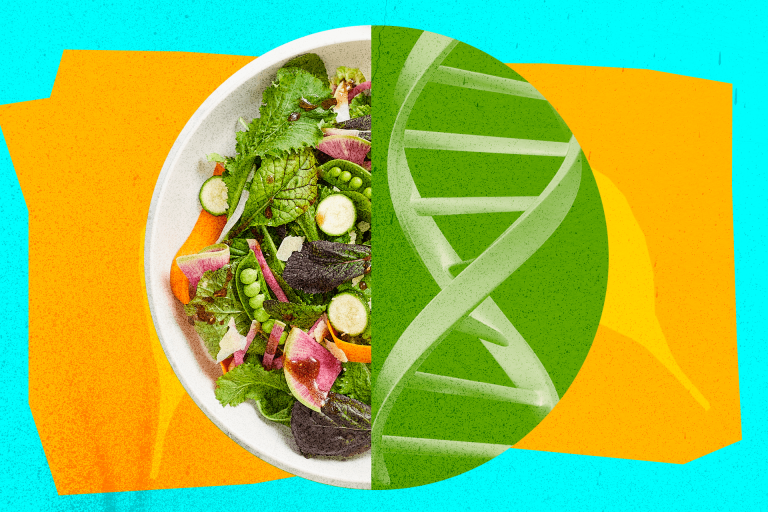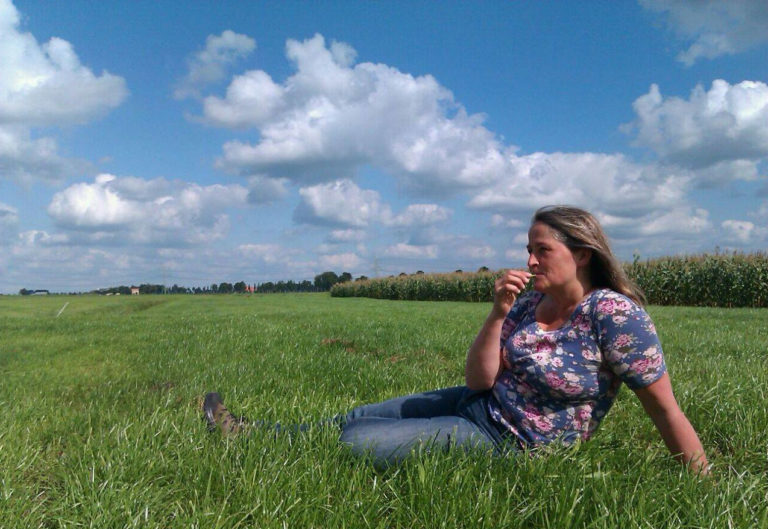News
Patents pose a real threat to two plant breeders
Since autumn 2023, the issue of patents has come to the fore in the debates surrounding the deregulation of GMOs. Some Member States and MEPs are concerned about the impact of agro-industry patents on the rest of the agricultural sector. History shows that the threats they represent are very real indeed. Here are two examples of seed companies whose products are targeted by such threats.

On 7 February 2024, the plenary of the European Parliament voted on amendments to the deregulation proposal put forward by the European Commission in July 2023. If, among these changes, the amendments on patents were to become definitive, traditional breeders, farmers and peasants would remain under threat of infringement actions from the few multinationals controlling patent rights in NGTs1. These threats could become a reality, as was already the case for the farmer Percy Schmeiser in 1998 and the French company Gautier Semences in 2004.
Today, this sword of Damocles is such that some players might prefer to withdraw some of their plant products from the market rather than negotiate with powerful patent holders or end up in court. This is despite the ongoing debates initiated by certain Member States and MEPs who are clearly concerned about their fate.
Rijk Zwaan, again
In 2004, the Dutch company puts pressure on Gautier Semences, which at the time opposed one of its European patents. This covered lettuces made resistant to an aphid, obtained using marker-assisted selection from a species of wild lettuce. The Provençal family business, for its part, had long since created lettuces resistant to this aphid, using conventional breeding methods. As Gautier Semences’ customers for this lettuce had been threatened by Rijk Zwaan, Gautier Semences had been forced to withdraw from the opposition proceedings against the Dutchman’s patent, negotiate a licensing agreement with him and pay him royalties so that it could continue to market its lettuce seeds2.
In 2021, Frank Morton, a US seed grower based in Oregon, sold a customer a lettuce variety, ‘Funny Cut Mix‘, developed by his company and certified for organic farming. The customer wanted to include it in his lettuce trials to assess its performance in a specific environment. When questioned by Inf’OGM, Franck Morton explained that the customer liked the variety, but found it too similar to one of the varieties he sells himself, which happens to be covered by a patent. The customer therefore no longer wanted to sell Franck Morton’s “Funny Cut Mix” variety. Morton was astonished: “Well, the entire point for me breeding the Funny Cut Mix was to give growers a non-patented choice in a “multi-leaf” type lettuce. By eliminating my variety from consideration BECAUSE it is competitive with a patented product turns the argument in favor of patents on its head. Patents are claimed to spur competition, not preclude it. In this case, my intention to compete with patented lettuces is undermined by my success in doing so. Yes, I still sell Funny Cut Mix directly to customers, but not through other catalogs. »
Franck Morton considers that, from his personal point of view, his work cannot infringe Rijk Zwaan’s patents insofar as he did not use any patented material or parental lines to create his varieties: “I used the naturally occurring traits of my own lettuce lines to create ‘Funny Cut Mix,’ and I don’t believe Rik Zwaan has any complaints they can use against me. I believe that genetic traits and the genes underlying them are the works of nature, not plant breeders. Plants breeders discover traits and their attendant genes, they don’t invent them.” The Oregon breeder concludes: “So, I am not worried about Rijk Zwaan. They can come and get me. It would be a nice capstone to my career to illuminate the lack of foundation in plant patent law. I have a pure conscience, but I think they do not”. Franck Morton should perhaps not underestimate – and perhaps he does not – the capacity for legal action of patent holders, especially multinational seed companies. Protecting their industrial property costs them dearly, and the patents they obtain will in all likelihood be generally defended.
KWS’s patented maize raises eyebrows
The Dutch company Nordic Maize breeding (NMB), which also works in organic farming, markets around a third of the organic maize seed sold in the Netherlands. Since 2023, it has been concerned about its cold-resistant maize, which it has been developing for some twenty years. Its co-owner, Grietje Raaphorst-Travaille, learned that in July 2022, the German company KWS (the world’s sixth largest seed company) had obtained a European patent (EP3380618) on a genetic sequence that could be present in NMB’s maize.
The claims of the patent granted to KWS cover, among other things, a cold-tolerant maize plant, allegedly obtained by marker-assisted selection, which includes a specific nucleic acid (DNA) sequence conferring such resistance, as well as any sequences 98% identical to this specific sequence. In an article in Politico3 the Dutch entrepreneur states: “Plants with the characteristics claimed in the patent have been on the market for years. Granting these patents only increases the legal risks, costs and uncertainties […] It could mean that Nordic Maize breeding will be the last company to launch a maize breeding programme and that freedom of breeding will come to an end.” In an interview Inf’OGM had with Grietje Raaphorst-Travaille, she explained that her maize’s resistance to cold is multifactorial and expressed surprise that KWS’s patented maize plant needed only one gene to respond to this abiotic stress.
This last aspect must be emphasised because, if confirmed, it could call into question the validity of such a patent. The claims of a patent must, in theory, define the essential means of the invention. In this case, they should therefore include all the genetic sequences involved in cold resistance. Since May 2023, this KWS patent has been contested in an opposition, still pending, filed with the European Patent Office (EPO) by No Patents On Seeds (NPOS). Grietje Raaphorst-Travaille has informed us that she is “obviously” continuing to grow her cold-tolerant maize for the time being, despite this patent. However, as she explained to Politico: “I am not convinced by the guarantees of the big seed companies that they will offer free or affordable licences on their patents […] as a small breeder, you will never be free. […] You will always have to listen to these bigger companies“.
These examples from Nordic Maize breeding and Franck Morton show the concrete effect of patents on breeders and farmers. French companies have also expressed reservations about patents on GMOs/NTGs. The fate of all cultivated biodiversity could well be in the hands of a few owners of patents on plant traits if GMO deregulation were to succeed as proposed by the European Commission. All the more so if, as proposed by the European Parliament, the European Union calls into question the patentability of products, but not that of NGT processes, which will extend to the products obtained if they have the claimed characteristics.
Two concrete examples of the fears of certain Member States
For several months now, the Member States have also been expressing their views on the subject of patents, in particular patentability, access to genetic resources and the insecurity generated for players in the agricultural sector. And the current inability of the European Council of Ministers to adopt the proposed NGT regulation is essentially due to a lack of consensus on this issue. The position of several Member States was communicated to the European Commission this autumn4.
It would be difficult to summarise these positions, but a few can be highlighted. First of all, several European countries, notably France, Poland and the Czech Republic, are expressing concern about the negative impact of patents on small farmers and biodiversity. These countries are calling for accelerated impact studies (the date put forward in the text voted by Parliament is 2025). Other countries, such as Finland and Lithuania, are calling for better coordination between legislation on patents and plant variety rights (PVR), and for clarification of existing regulations. Poland and the Czech Republic are more outspoken in their opposition to the patenting of native traits in order, among other things, to protect varietal innovation. In addition, several countries are calling for unrestricted access to genetic material and NGTs in order to maintain a balanced intellectual property system.
- Denis Meshaka, L’exclusion de la brevetabilité des seuls OGM/NTG serait un leurre, Inf’OGM, 29 February 2024. ︎ ↩︎
- European Coordination Via Campesina, “Impacts of the Commission’s initiative to amend the regulation of certain plant GMOs on the application of European patent law”, 9 November 2022. ︎ ↩︎
- Bartosz Brzeziński and Paula Andrés, “Patent war looms over Europe’s future supercrops”, Politico, 6 February 2024. ︎ ↩︎
- Council of the European Union,“Regulation on new genomic techniques (NGT) – comments on biotechnology patents in plant breeding from the Netherlands, Poland and Romania”26 October 2023.
Council of the European Union,“Regulation on new genomic techniques (NGT) – comments on biotechnology patents in plant breeding from France”26 October 2023
Council of the European Union,“Regulation on new genomic techniques (NGT) – comments on biotechnology patents in plant breeding from Finland, Hungary and Lithuania”26 October 2023
Council of the European Union,“Regulation on new genomic techniques (NGT) – comments on biotechnology patents in plant breeding from Cyprus, Czechia and Denmark”26 October 2023
Council of the European Union,“Regulation on new genomic techniques (NGT) – comments on biotechnology patents in plant breeding from Germany”, 26 October 2023. ↩︎














